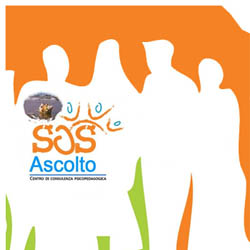

| Italy – A Salesian Identity Card for residential services for juveniles |
| RMG – Project for Europe: a glance at the Italian situation |
(ANS – La Spezia) – Among the various activities which the “Don Bosco” Oratory in La Spezia and the SCS/CNOS Federation- Salesians and Social Work organise together with other administrate and social policy partners, is “SOS Listen”, a programme of advice, welcome and accompaniment aimed at responding to the social needs not immediately visible and help with the more wide-spread difficulties between parents and children.
“In the city of La Spezia,” Fr Antonio Integlia, Director of the Oratory, notes, “ the social problems of families and children are very varied and especially are hidden. Someone in a difficult situation can in fact be very reluctant to ask for help for a variety of reasons: a partially illegal situation, an inability to accept one’s own situation, a fear of being judged publically, pride. In other cases on the other hand people are not even aware of the existence of such local services. The lack of support in the initial stages of something being wrong can lead to an increase in subsequent problems, to social exclusion, to dependency, deviance and psychological harm.”
In these circumstances in which it is difficult to organise formal assistance, it is important to try to anticipate problems and to establish easily accessible support systems, multi-disciplinary and arranged informally. The service provided by SOS Listen, free and anonymous, is aimed at youngsters, parents and families and intended to deal with doubts regarding education, communication with the children, interpersonal by the couples, schools and job placement. It is possible to reach SOS Listen by a phone-call, and then it is possible to arrange a talk with an expert and if necessary, a process of accompaniment for individuals, couples or groups.
The immediate objectives of SOS Listen are the promotion of parents’ knowledge and skills, listening and providing an initial response to the psychological needs of the families, appreciating unspoken needs, guidance and accompaniment towards existing special services.
Arriving at the causes of the problem and providing information about the services available will also lead to coordinating and offering further responses to the needs of the citizens.
Published 08/03/2012
